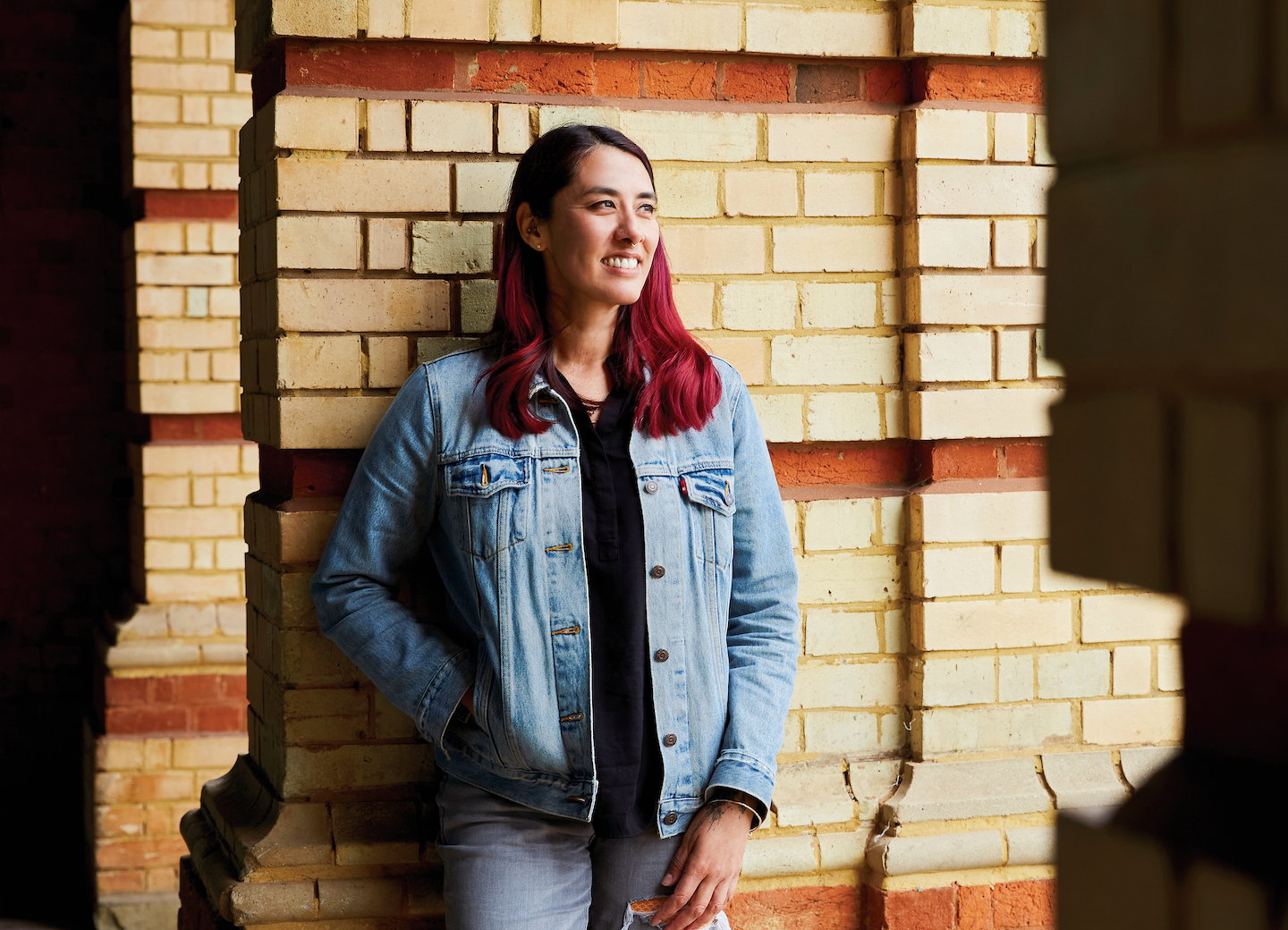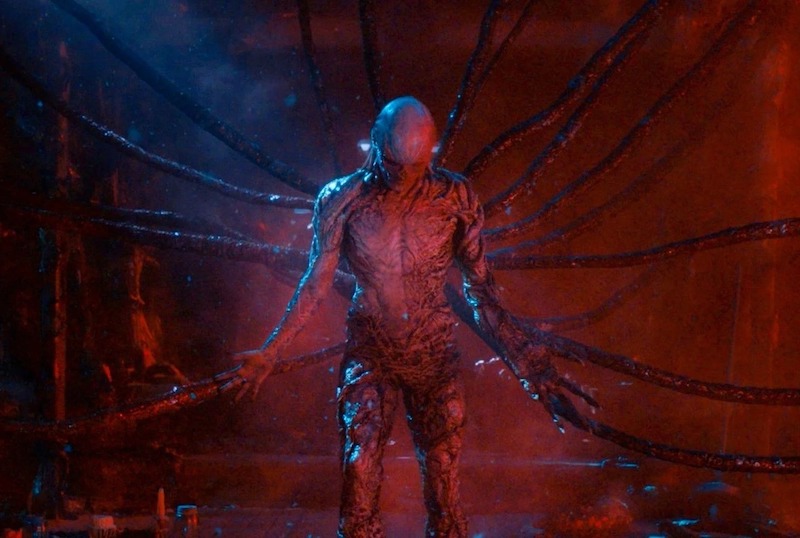
Eden's mother was born in Penang (Photo: SooPhye)
A director’s job is to bring a character’s story to life but it takes a special makeup effects artist to flesh it out. The latter can get quite literal for Paula Eden, who works in a studio teeming with dismembered limbs, severed heads and hands that look real enough to shake. For a movie buff who is still thrilled by the toothy nightmare in Alien that has haunted many a cinemagoer, she loves how a few (brush)strokes of genius can make for a bloody good time.
“It was my absolute dream to work on an Alien film. So, to be able to work on two — Alien vs Predator and Prometheus — was amazing. To this day, I’m terrified of these creatures but I still feel they’re the best things ever designed,” says the Londoner (her mother Khoo Siok Oo is a Convent Pulau Tikus girl from Penang), who cut her teeth at Madame Tussauds briefly.
If a regular makeup artist is obsessed with putting the best face forward, Eden, who has created prosthetics and bodily effects for some of the biggest film and TV franchises to date such as Harry Potter, Game of Thrones, Guardians of the Galaxy, Maleficent 2 and The Witcher, thrives on imperfections. Vecna, the tentacled archvillain at the centre of Stranger Things season 4 who murders in horrifying fashion, was one of the hardest but most satisfying characters to put together. “Think tumours, haggis, gross internal organs, deep sea creatures … it’s pretty disgusting,” Eden describes with glee.
vecna.jpeg

She had good reason to rejoice. The Netflix sci-fi horror hit by creators Matt and Ross Duffer scooped five gongs, including Outstanding Prosthetic Makeup, at the recent 74th Primetime Creative Arts Emmy Awards. The charred overlord of the Upside Down, designed by award-winning prosthetic expert Barrie Gower of Game of Thrones fame, had much to do with the success. “I was in disbelief when they announced the winner. I looked to my best friend who came with me and she said, ‘You need to stand up!’ That’s how shocked I was.”
Influence endures, and winning an award, especially for a category that demands the most scrupulous artistry, helps to level the playing field in the entertainment industry and push it forward.
“It’s a validation of all the hard work we’ve done, particularly when there’s pressure to make something so iconic. The crew also love the series, so we didn’t want to let ourselves down either. It’s one of the most stressful jobs I’ve been on, so to actually be rewarded was really nice.”
Eden had met Gower, whom she calls a close friend and mentor, during her first Harry Potter endeavour, Goblet of Fire, in 2004. The duo have collaborated on numerous projects since. “I started on Potter making sweets for Honeydukes, and it was really fun! I left for university to do my bachelor’s degree in theatre design: technical arts interpretation at Wimbledon School of Art, before training under Nick Dudman’s Creature Effects Workshop, where we did Thestrals, dragons, goblins and, of course, Dobby. Nick gave me my big break, and I ended up staying there for seven years. But the best part of working on Potter was meeting other industry players. The people on set were so warm they just embraced you like a big cuddle. Dan [Radcliffe], who was never rude and such a good guy, still remembered my name every time I did his makeup.”
paula.jpg

Asked to name her favourite character in the wizarding world, Eden, who rose to the position of art finishing supervisor during Deathly Hallows, swiftly replies, “Sirius Black. Because he’s an outcast and has a good heart. Ultimately, he just wants to protect everyone. Also, it’s played by Gary Oldman.” This writer concurs.
Streaming giants, despite facing headwinds of losing subscribers, have opened up more doors for the creative industry, mainly during the pandemic because viewers were hungry for content. “It was a boom time because Netflix, HBO and Disney brought their studios to London. Before their arrival, you would expect to be unemployed for two to three months in a year. Now that there are more avenues, the quality of TV shows is not that different from that on the big screen. You’ve got to bring your A-game because everything is in 4D, and some people’s tellies are better than the cinemas these days.”
With extreme demands come exacting production standards. The uninitiated tends to underestimate the painstaking efforts that go on behind the scenes, from crafting a plaster cast 20 days ahead of a shoot to punching every fine lash into a dummy’s eyebrows. Eden’s father Biff, too, did not quite understand her role at first, and was worried about her career choice in the arts.
“When I was in university, my dad genuinely thought, ‘What is she doing with her life?’ My mum, who was a rebel and ran away to England from Malaysia, was pretty cool about it but my dad wasn’t really convinced. He finally realised what my job was when I brought him to see Goblet of Fire, which I got credited for, and tour the set. He actually cried his eyes out.”
Despite growing up in a tiny town like Sandy in Bedfordshire, Eden’s childhood was never dull as she was constantly surrounded by her father’s pets: birds, hamsters, rabbits, guinea pigs, snakes and greyhounds.
_s1a5267.jpg

“The house was like a zoo,” says Eden, who now lives with her own greyhound, a graceful and sweet-tempered dog named Johnny. It was also dad, a man of many skills and interests, who brought her into the world of action and adventure.
“We lost him in 2014, but there’s still a part of me that feels he is still around. This gold necklace chain I’m wearing was given to me when I was 12. Dad had a friend who was an antique dealer, so he always bought things for me and my sister. I hadn’t worn the necklace in years but I wore it to the Emmys for, you know, good luck. And I’ve been wearing it a lot ever since, like a lucky charm. I think, no matter what, he would have been immensely proud of me.”
This article first appeared in The Edge's London special issue on Oct 10, 2022.


